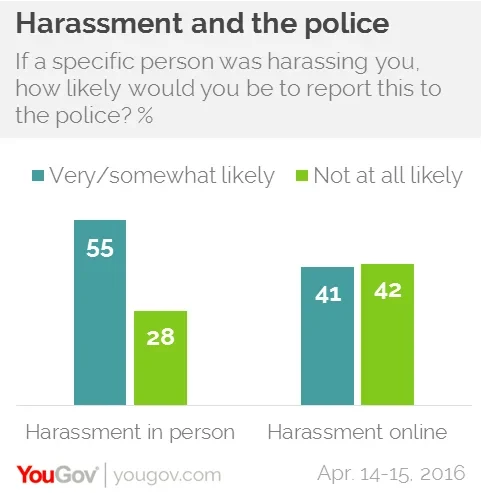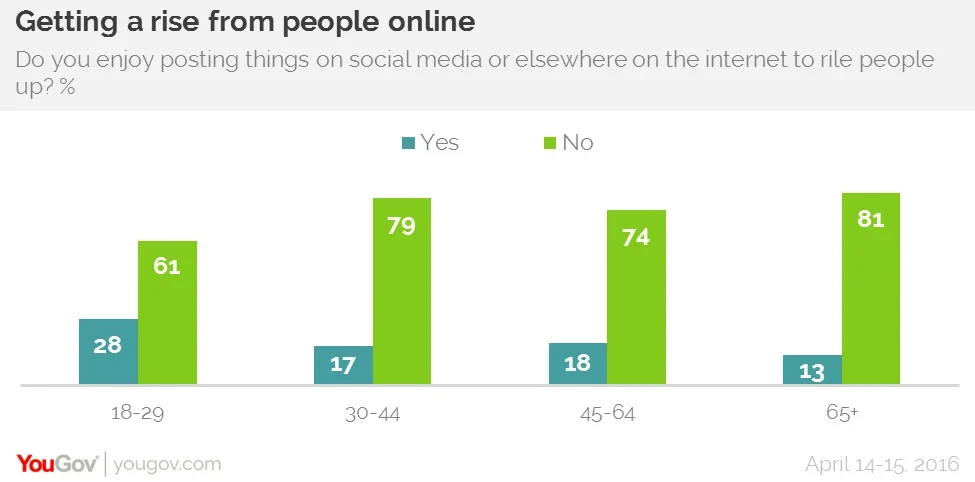People are less likely to consider online harassment an issue for the police, and a quarter of under-30s enjoy deliberately riling people up on the internet

In 1996 Monica Lewinsky was at the center of the political storm that led to the attempted impeachment of Bill Clinton. The internet was only in its infancy then, but she became one of the first people to be named and shamed online. In the years since she got a master's in psychology at a university in London and since 2014 has been a prominent campaigner against online bullying and harassment, giving a speech which is now often played in schools to discourage bullying online.
YouGov's latest research shows that, happily, most Americans (76%) have never been bullied or harassed online. Under-30s (33%) are the most likely to say that they have been a victim online.
55% of Americans say that they would be 'very' or 'somewhat' likely to report in person harassment to the police, but only 41% say the same about online harassment. The proportion who explicitly say that they would not increases from just over a quarter (28%) for in person harassment to just over two-fifths (42%) for online harassment. Despite being the most likely to have been harassed online, under-30s are also the most likely (52%) to say that they would not report harassment online.
Under-30s are also the most likely to say that they enjoy posting things on the internet to 'rile people up'. 28% say that they like riling people up online, compared to 18% or less for their elders.










